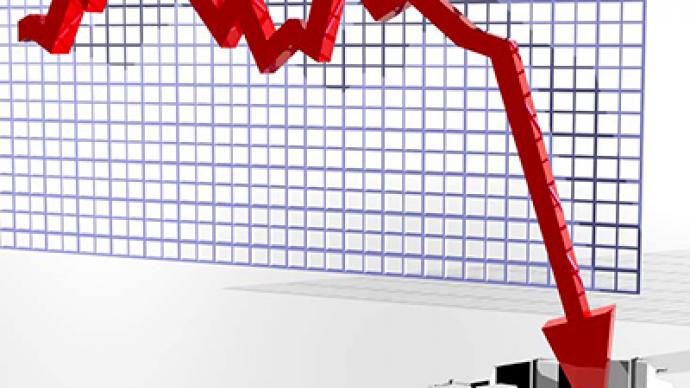EU slams Moody’s downgrade move on Portugal

Senior EU figures have condemned global ratings agency Moody's after it downgraded Portuguese sovereign debt by four notches to Ba2 or “junk,” with the EU Commission promising a review of the rating system and warning of ‘liability’ for misjudgement.
The Tuesday move by Moody’s has been condemned by Greek Finance Minister, Stavros Lambridinis, as ‘madness’ and slammed by Portugal’s Finance Minister, Vitor Gaspar, as not reflecting the unified support across the Portuguese political spectrum for the nations 78 billion euro financial rescue program and pledge to reduce its budget deficit to 3% of GDP by 2013, from 9.1% in 2010.In deciding to downgrade Portuguese sovereign debt from Baa1 to Ba2, or "questionable credit quality” status, Moody’s referred to what it saw as a potential need for a second bailout before Portugal can return to capital markets.This could see it potentially following in the wake of Greece, which last week voted in favour of further austerity measures to ensure another round of bailout funds from the EU and IMF, amidst widespread public protest.The EU Commission called Moody’s decision an "unfortunate episode" with Jose Manuel Barroso, the EU Commission President, telling reporters in Strasbourg on Wednesday that the EU would look into issues of "civil liability" for incorrect judgements by agencies on the credit worthiness of European countries, referring to a need to reduce Europe's reliance on North America-based ratings agencies."It seems strange that there is not a single rating agency coming from Europe. It shows there may be some bias in the markets when it comes to the evaluation of specific issues of Europe,"said Barroso.German Finance Minister Wolfgang Schaeuble said on Wednesday that Moody's downgrade of Portugal is not justified, adding that limits should be put on the rating agencies' "oligopoly.""From our viewpoint, there is no well-founded reason for such an assessment at this early stage," Schaeuble told reporters, noting that Portugal is not only fully on track in implementing its austerity and structural reform package, but even "ahead of the curve."The downgrading of Portugal's credit rating to "junk" cast new doubt on European efforts to avoid sovereign debt restructuring of distressed Eurozone states including Greece, Ireland and Portugal, with Spain and possibly Italy also seen as being under pressure.The ratings downgrade for Portugal came amidst European governments and banks negotiating a second 120 billion euro bailout for Greece, which has a much higher debt ratio.Douglas Carswell, an MP from the British Conservative Party, told RT another bail-out would be a foolish step for the EU and that the indebted nations needed to leave the Eurozone.“The so-called bail-out is adding to the amount of debt owed by countries, who are already bankrupt,” he said. “If we really want to fix this problem, instead of adding to the debts of Portugal, Greece and other countries, what we should be doing is three things. We should be devaluing their currencies – that means leaving the euro. We should be allowing to default on their debts – restructuring, if you prefer this term. And we should be forcing them to downsize their expensive, bloated public sectors.”Carswell added that 42 percent of Greek debt is owned by foreign private institutions, including French and German banks.He said that the determination of the EU to prevent a restructuring meant that bailing out Greece, or other indebted nations, simply transferred the burden of debt to European taxpayers, and concluded by noting that it was time to address underlying solvency.“We have been told ever since the Western credit crunch erupted in 2007 that bail-outs of banks and countries is the answer. All we managed to do is to turn a banking crisis into a sovereign default crisis. We have not got over the debt. Now we need a different approach, one that allows the IMF to do what it has originally done, which is to reduce the burden of debt rather than pass it onto the taxpayer,” he said.Raoul Ruparel, an economist with the independent think tank Open Europe, does not place much faith in bailouts. He prefers a default on debt to debt accumulation, though Europe’s approach seems to delay the default as much as possible to protect its banks.“It doesn’t look bailouts will work at all,” said Ruparel. “They won’t solve any of the long-term problems. They do allow the countries to fund themselves for a short term of time – a year or two. As we have seen in Greece, it was only a year and now they need another bailout. But ultimately these countries are insolvent and they will not be able to fund themselves in the long term, so they will need some foreign debt relief or restructuring. So it is better to get this done sooner rather than later, as the debt will only increase in terms of political and economical cost. And the debt in all these countries is yet to peak, and will continue to increase in the next couple of years.”














